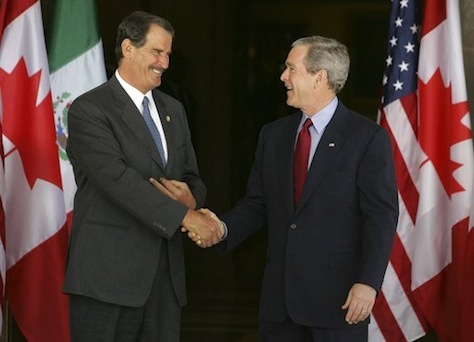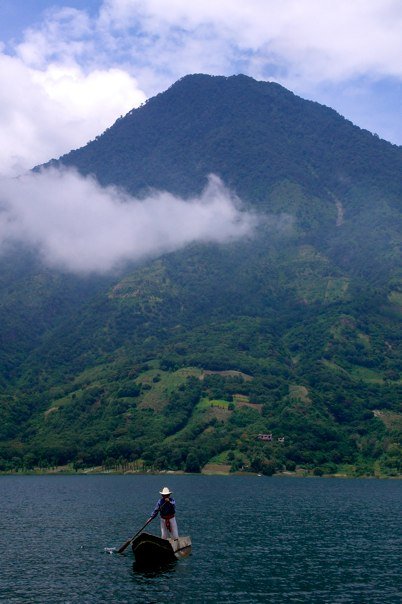In 2001, when George W. Bush came to power in the United States, three factors — his record as a Texas governor, the strong relationship that he had developed with his conservative Mexican counterpart, Vicente Fox, and his hope to make the Republican Party more attractive to US-based Latino voters — meant that immigration reform was suddenly back on the agenda for the first time since 1986.![]()
Three US presidential elections, two Mexican presidential administrations and a 2001 terrorist attack and a 2008 financial crisis later, Bush’s successor, Democratic president Barack Obama, will take a leap toward immigration reform today through executive action, pushing as far to the line as possible without exceeding his authority vis-à-vis the US Congress.
Obama will announce today a plan that will de-emphasize the deportation of undocumented immigrants to the United States who have lived in the United States for at least five years, and he will do so with a prime-time Thursday night speech and a campaign-style rollout in Las Vegas on Friday:
Up to four million undocumented immigrants who have lived in the United States for at least five years can apply for a program that protects them from deportation and allows those with no criminal record to work legally in the country, President Obama is to announce on Thursday, according to people briefed on his plans.
An additional one million people will get protection from deportation through other parts of the president’s plan to overhaul the nation’s immigration enforcement system, including the expansion of an existing program for “Dreamers,” young immigrants who came to the United States as children. There will no longer be a limit on the age of the people who qualify.
But farm workers will not receive specific protection from deportation, nor will the Dreamers’ parents. And none of the five million immigrants over all who will be given new legal protections will get government subsidies for health care under the Affordable Care Act.
It’s a strong first step toward reforms that both Republican and Democratic politicians have attempted (unsuccessfully) to pass through the US Congress since the Bush administration. Obama’s action could affect between 4 to 5 million of the currently 11.4 million undocumented immigrants in the United States today.
Why now? And why without Congress?
A pro-reform Republican president couldn’t pass a bill with either a Republican-led Congress (from 2005 to 2007) or a Democratic-led Congress (from 2007 to 2009). Nor has a pro-reform Democratic president passed a bill with either a Democratic-led Congress (2009 to 2011) or, currently, with a Republican House. Obama’s action indicates that he doesn’t believe that the switch to a fully Republican-led Congress will make much different. Despite howling from the Republican opposition about the ‘monarchial‘ nature of Obama’s executive action
While Washington debated immigration for over a decade, the nature of immigration in the United States has changed dramatically. Even if the basics of ‘reform’ today still look and feel like they did in 2001 or 2005 or 2008, the world has changed, and the nature of immigration to the United States has changed with it.
* * * * *
RELATED: 2014 US midterms showcase rise of Asian Americans
* * * * *
For example, in 2013, more Asians migrated to the United States than Latin Americans, part of a new wave of immigration from an even more diverse array of cultures, languages and backgrounds that’s rising. In 2008-09, as the global financial crisis sent the United States into its worst recession in decades, net migration from Mexico actually decreased, reflecting a larger trend that began in the mid-2000s. Continue reading Throughout ‘reform’ debate, US ‘immigration’ has changed

